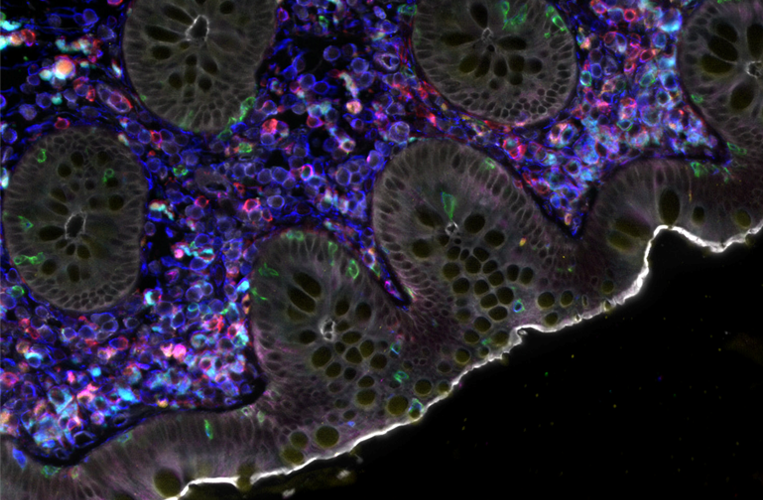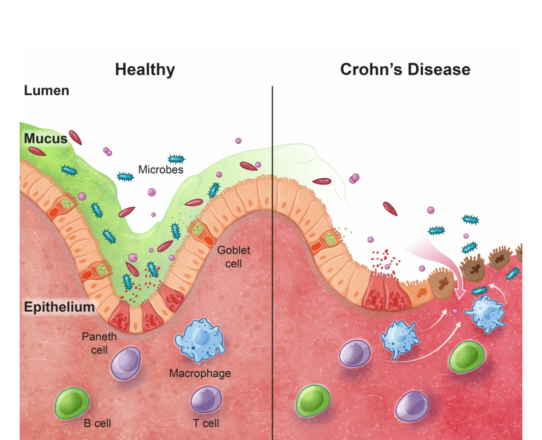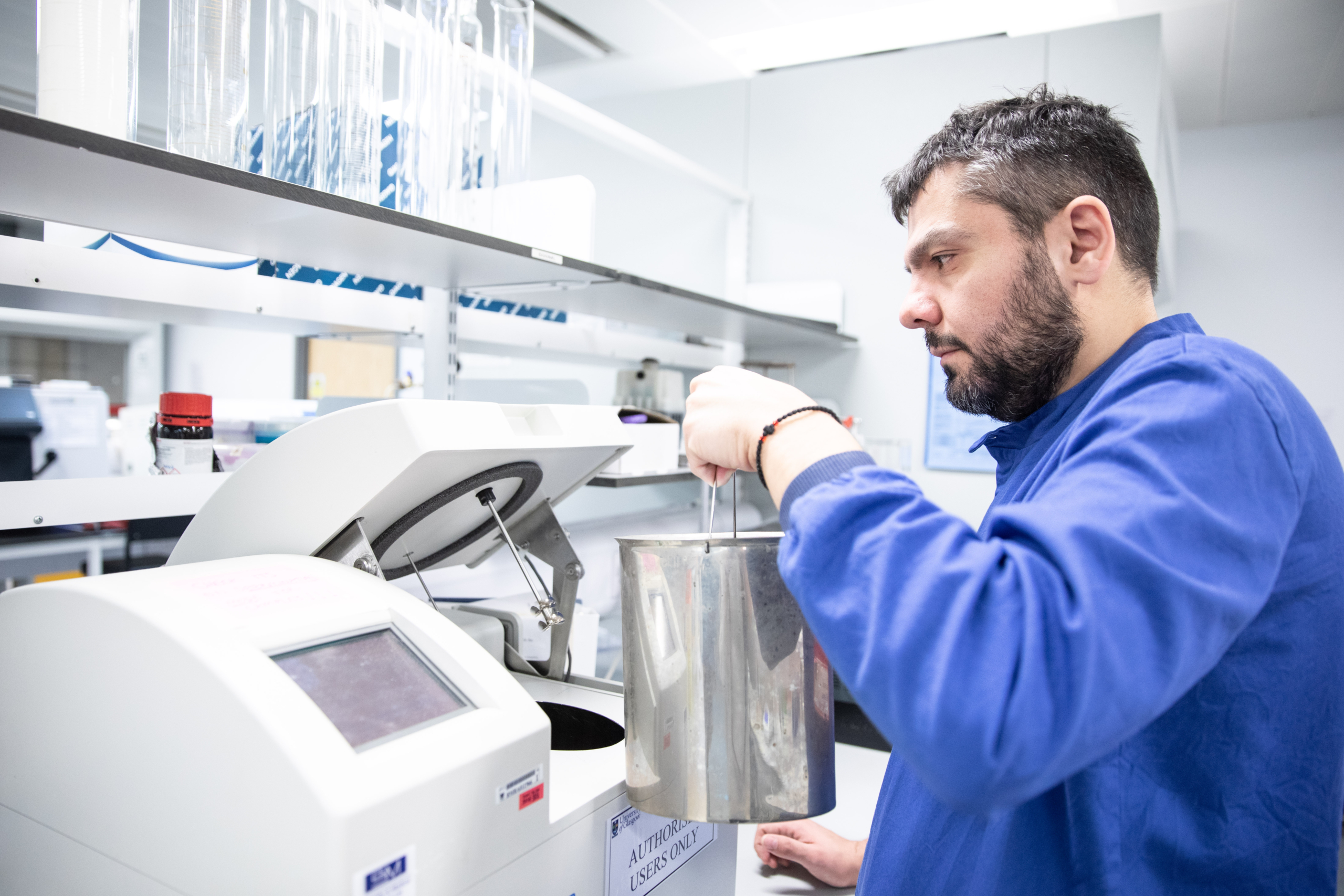Crohn’s disease is believed to develop from dysregulated immune responses to environmental triggers in genetically susceptible individuals. Gaining insight into the complex set of interactions among the intestine, immune system, and environment leading to disease onset is the goal of the Crohn’s Disease Program’s Disease Biology focus area.
Launched in 2022, the Disease Biology focus area represents our commitment to supporting research to unravel the molecular and cellular processes that contribute to Crohn’s disease — to inform disease prevention strategies, the development of novel therapeutics, and ultimately better patient outcomes. Our strategy centers on three areas:
Environmental influences on gene expression
More than 200 genetic loci have been associated with risk of Crohn’s disease and familial inheritance is widely recognized. Yet, genetic factors alone do not explain disease onset. In addition, differences in age of onset, differing locations of disease within the intestine, and increasing case rates of disease in newly industrialized societies point to an environmental influence, which may be mediated through altered gene expression. Research into how environmental factors imprint on biological processes may help reveal underlying causes of Crohn’s disease.
Intestinal barrier regulation and wound repair
The intestinal mucosal barrier maintains a healthy balance of microbes in the intestine and robust protection against disease. Breakdown of this barrier, and loss of the ability to self-repair if damaged, is a sign of Crohn’s disease and its complications. Identifying molecules that contribute to this breakdown, and comparing cell composition, structure, and multi-omics across states of flare and remission could offer new inroads for understanding the biology of the disease.
Triggers of the immune response
The link between a dysregulated immune response and environmental and systemic factors such as the microbiome may be key to understanding the pathogenesis of Crohn’s disease. Efforts that characterize immune responses to environmental factors in Crohn’s disease patients — including how diet may alter the microbiome, or how pathogens may affect immune regulation in the gut — hold promise to uncover novel therapeutic targets.




